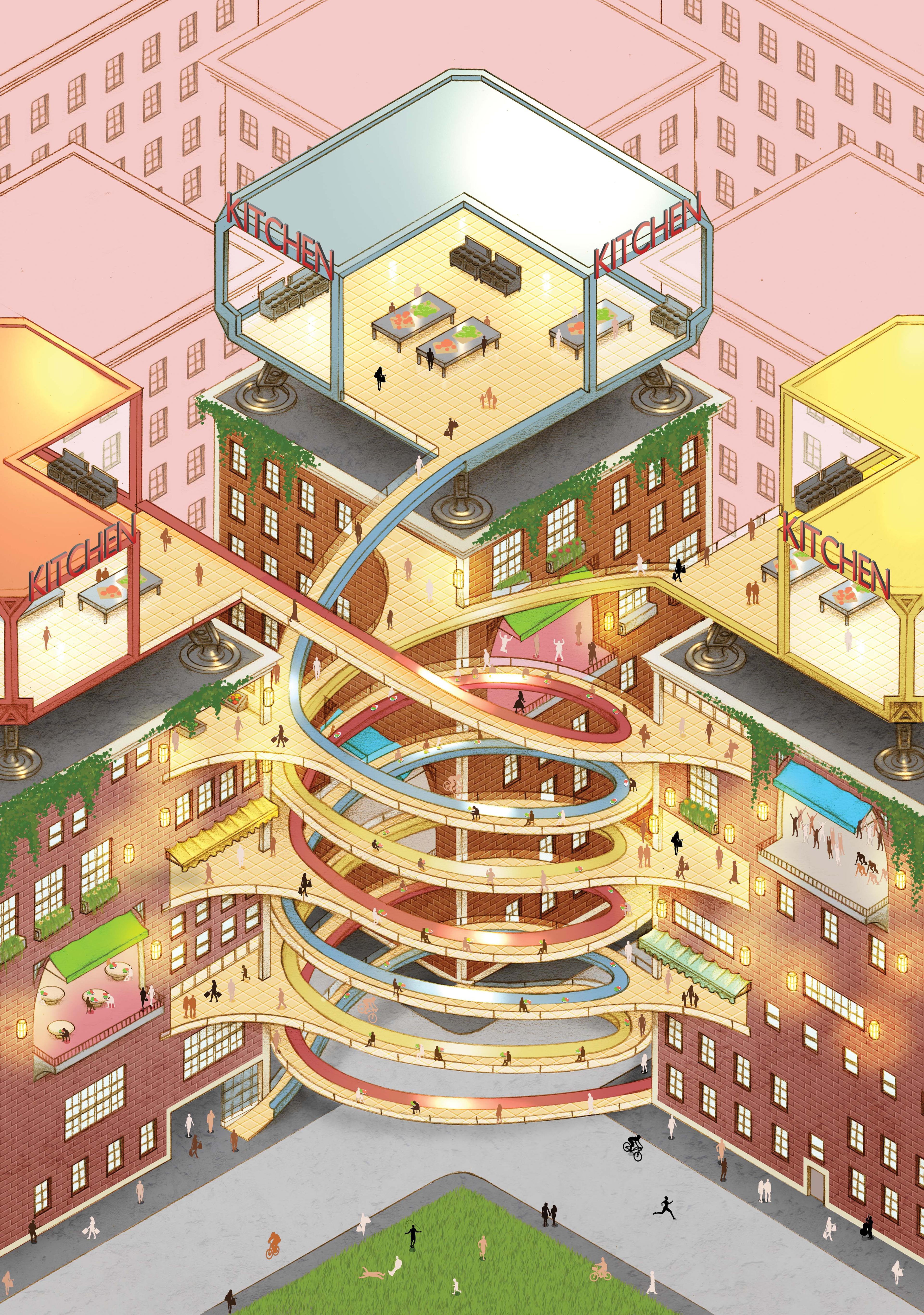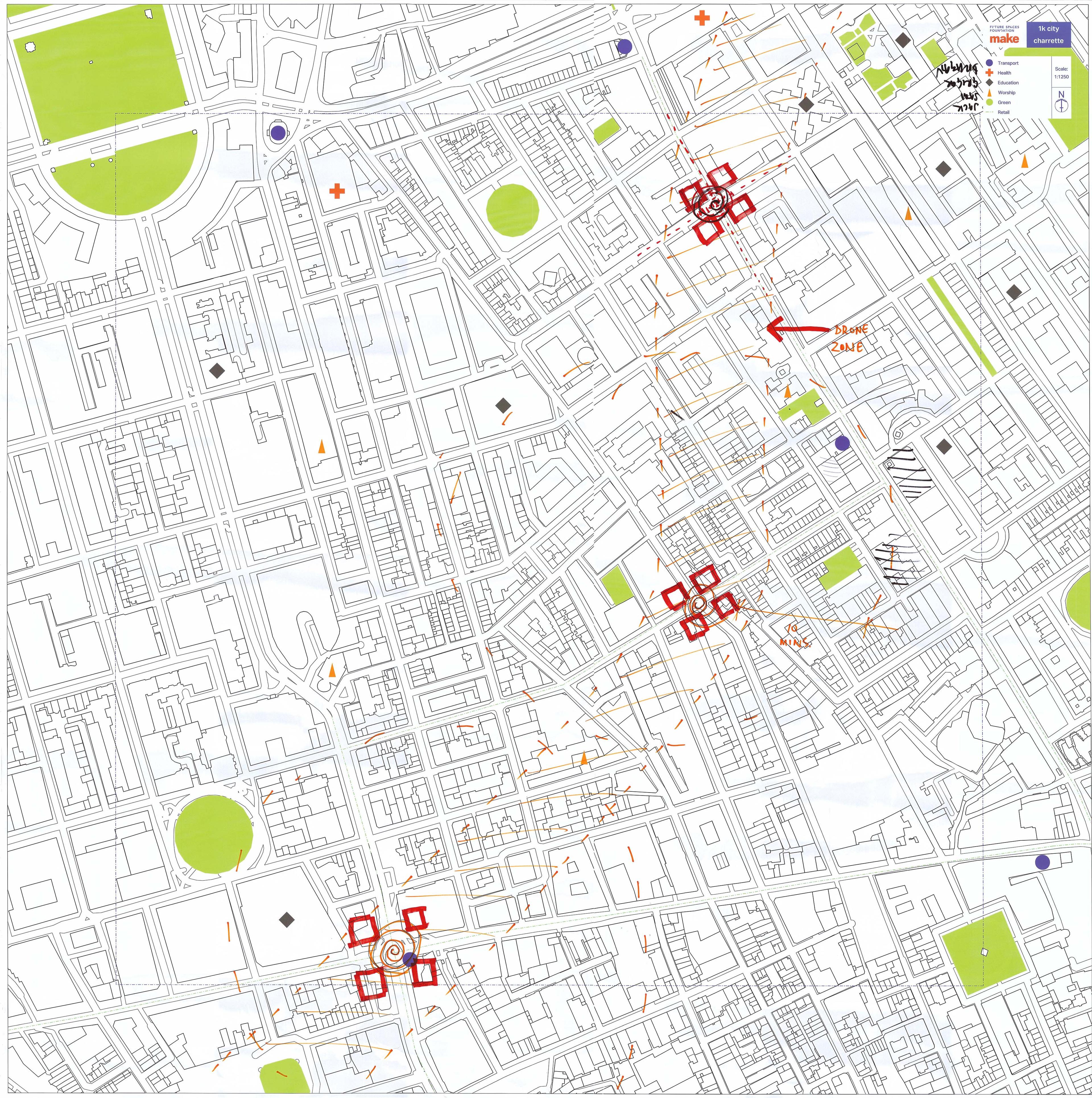Relationships
Relationships in dense cities arise from social interactions between people. Public places are particularly fertile for provoking spontaneous interactions between strangers as well as friends, colleagues and families.
We chose to explore how different places and spaces related to food and its preparation, delivery and consumption within the urban realm could create and reinforce opportunities for relationships within a city.
Our proposal explores a street that is no longer a flat area confined to the ground plane but has become stratified upwards in the densified cityscape. In this vision, active frontages represented by shops, bars, restaurants and community hubs can occupy any position along the height of a building.
We have envisaged a new typology designed for a dense city: the urban kitchen table. It acts as communal gathering space but with a small footprint. It connects the amenities positioned high up on the building floors, is an extension of the street, and if located above road intersections can act as a pedestrian overpass. But most importantly, it is a catalyst for people coming together as part of their daily rituals, creating a better connected, vibrant and social city.
The advent of drone transport as well as the culture of co-living/co-working in the near future will likely welcome the use of pod-like rooftop communal kitchens, where local residents and visitors could gather and prepare food communally or have their takeaway orders delivered to the roof via drones.

